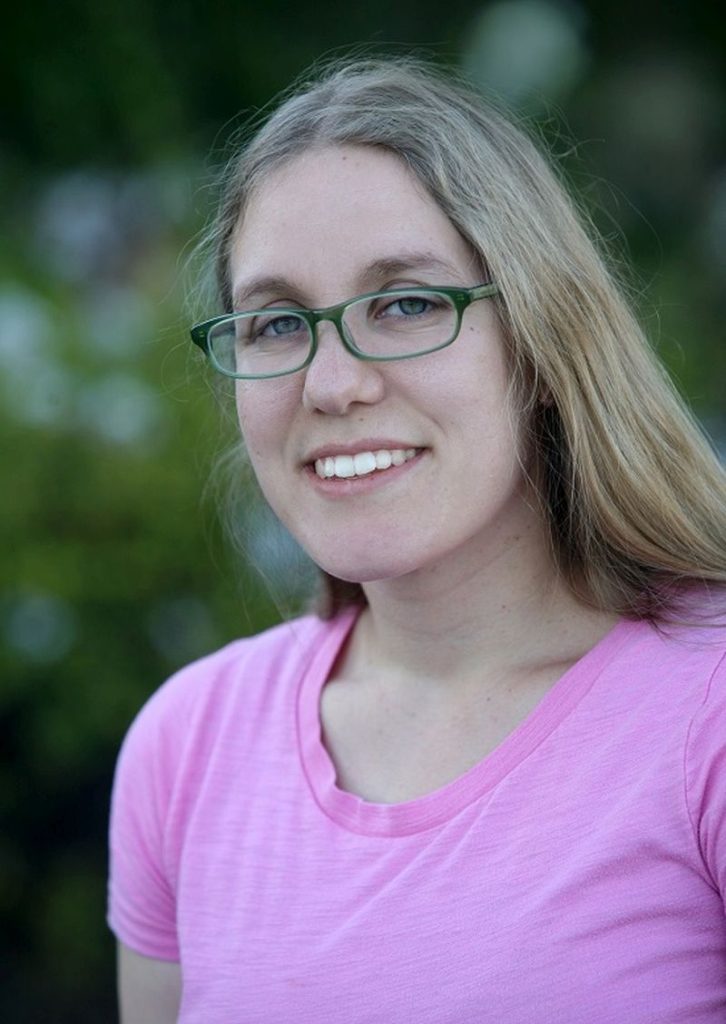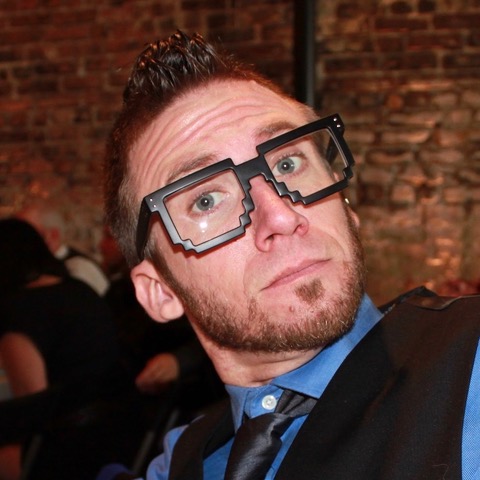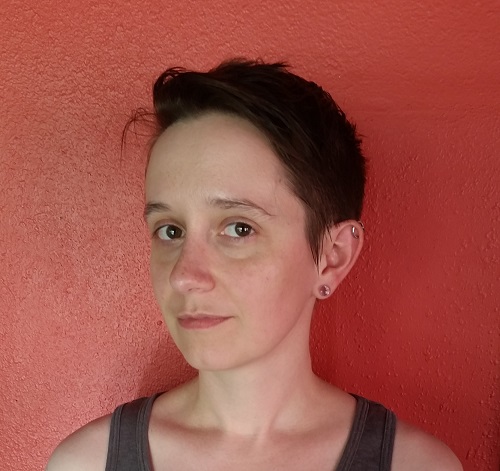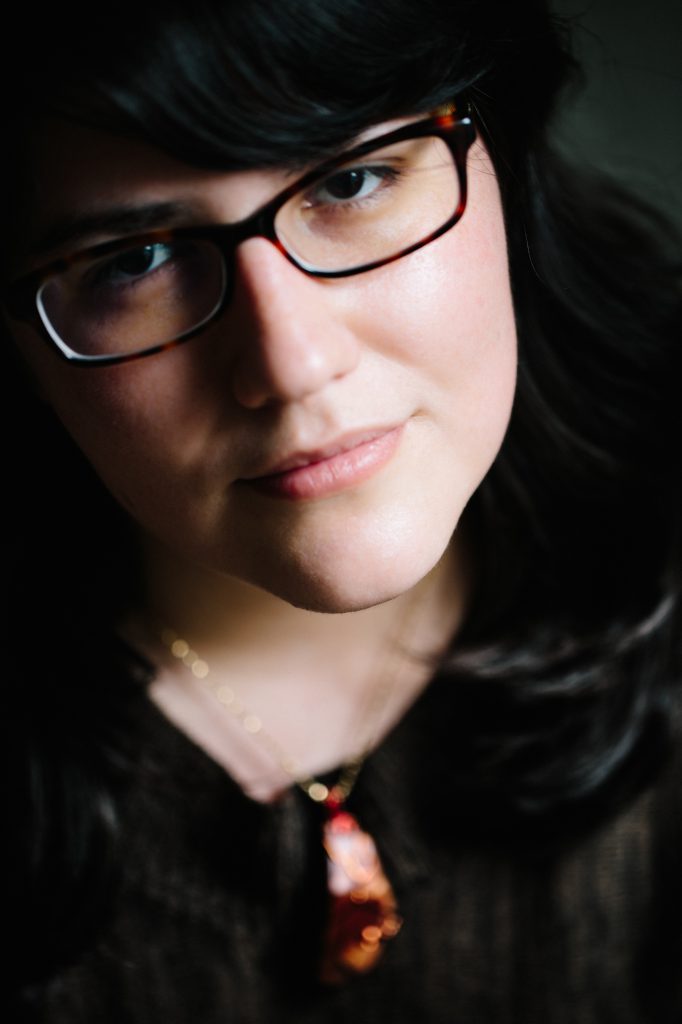edited by Amanda Helms
The structure of the house was Jane’s first indication that anything was wrong. She walked through the upper floor, with the bay window looking out onto the candy box houses of San Francisco, smooshed together like so many love letters. The office and kitchen hugged the bedroom, and the backyard divided itself into three neat sections, contrasting with the wilderness across the fence.
On the top floor, all was fine.
It was the lower floor that whispered, full of secrets. The garage twisted into a bedroom and back again. Squeezed into the side of the garage was the room that was not a room, but a hallway closed at one end, shadowed where shadows should not be.
Jane had thought, “What luck,” when she found the house available on such short notice. Fully furnished, ready to rent for the month. She’d forgotten that luck goes both ways.
When she wasn’t consulting at the Botanical Garden, Jane lounged on the upper floor, reading the science fiction books kept in their mounted cubbies. As she flipped through the pages, she told herself she could not sense the lower floor, with the room which was not a room directly beneath the hanging books. She told herself not to think about it.
On her third night, wanting desperately to get out, anywhere, she went to see a metafictional play which had no title and refused to refer to itself in the playbill. It seemed like the sort of thing one did in San Francisco. The actors kept reaching out to touch her hair and whisper in her ear that the air was full of words, words that flew and never settled, words that glided past in syllabic silence. After the performance, the audience shuffled into a reception hall, where everyone was served lukewarm wine. An actor with a beard told her about his wife, who was forever touching his hair and whispering in his ear, and Jane nodded along, not sure if this was still part of the performance. Not sure if she had become part of the play. “I hate it when people touch my hair,” she said, giving him a significant look.
***
Words are difficult things because they tend to get out of the places you put them. This is why it is best to use a cage of quotation marks around dialogue. For example, I might say, “An author who breaks the fourth wall asks a beneficence of the reader.” (Look at all those words, staying where they’ve been written.)
Other punctuation can be useful, such as parentheses (which can be put almost anywhere in a sentence without trouble). Paragraphs keep words in regimented lines from which it is hard to escape. In poetry, the words tend to get around the page. This is very dangerous, which is why one should never read poetry.
***
Jane had never liked the shape of the monkey puzzle tree. All those spines, going outward. All those shadows. And underneath, what was hidden? Araucaria araucana. The evergreen with symmetrical branches. The living fossil.
It was an unfair prejudice.
The room that was not a room, under the house, reminded Jane of the monkey puzzle tree. All those unnatural shadows, made from shapes that should not exist.
On her fifth day, Jane forced herself into the lower house. The room that was not a room glowed dimly in the light from the garage. Fear crept up her spine, but she’d had so much practice ignoring her fears that it barely registered. She had not yet realized that fear was a gift.
In the back of the room, the un-room, sat a bookshelf.
“Reach up and grab a monkey puzzle tree,” she thought, touching the scar on her hand. The scar was shaped like a parenthesis—an ink-dark curve left open, without a partner. She did not go closer to the bookshelf to see what it contained.
On the way out, she noticed the door had a lock which could only be used from the outside.
***
Reality.
R
E
A
L
I
T
Y
***
Everyone, quiet.
Quiet now.
Did you notice that, too?
A word got out.
Please remain calm. Please do not repeat the word, even if you have a desire to do so, even if you can feel your lips pursing to form that ‘r.’ Even if you desire the delicious release of that long ‘e’.
That is not a word we are going to say any longer. The word wants to be spoken. We shall not encourage it.
***
The reality of Jane
Jane loved clouds and hated sunsets, which looked to her like the sky bleeding across the moon. As a child, she had wanted to be a ballerina, a librarian, a botanist. She couldn’t remember all the things she had once hoped for so fervently, only that her hopes had filled her like words in a book, spilling out over the pages of her life. She listened no matter how softly someone spoke. Her favorite food was the oyster mushroom, even though it looked like a group of ears. She refused to believe in God and yet still felt, despite herself, that some intrinsic force flowed through the universe, some larger, unnamed thing. In college, she’d written poetry across her skin in eyeliner, because she liked to see what her body looked like with the words on the outside, arms and stomach and legs covered with them. Every Halloween, she wore pumpkin underwear and socks with black cats. At twenty-five, she’d ridden her bike up a mountain and cried because everything in her life was changing, but the color of the sky was still the same. In the inky depths of the night, when she could not sleep, Jane wove lanyards in the dark. Her tragic flaw was that she would load the dishwasher but never turn it on, always believing she could fit in one more spoon. These were not the things Jane would have told you about herself, but they are all true.
***
The upper floor was comfortable. Jane wasn’t sure why she couldn’t sleep. She found herself oriented to a particular point—angled downward, to the side of the house. The physical and temporal location of the room that was not a room felt like a blackhole, herself at the edge of the event horizon.
While consulting for the Botanical Garden, she couldn’t help but feel like the plants were creating their own corridors. She stayed away from the monkey puzzle tree.
It was two weeks before she went back to the un-room. Of course, she knew she would go to the bookshelf at the end. That’s how stories work. Reading, for Jane, was like breathing. Like eating. Books held the words that tied her brain together. She understood the reality of that structure, and the reality demanded that she examine the bookshelf.
In reality, the bookshelf kept its darkness, each shadow more real than the reality Jane felt in her realness as the reality she was living in passed her lips, outside of any quotation marks. Reality whispered. Reality, reality.
***
This is the trouble with words that get out. They get into our stories and into our heads. They haunt us, fill our minds, make us doubt the language that we use. Make us doubt that language was created for our use.
It is hard enough to tell a story that has all the things a good story ought to have. And finally the author gets some traction and the story is going along, but the words won’t behave as they should.
Say the author wants to describe how Jane reached out to the bookshelf and cut herself on the shiny edge. Her blood runs down and feeds the mass of shadows, and Jane becomes a shadow herself, haunting the house like a word looking for a mind to infect.
Or perhaps the ending the author has in mind concerns the book sitting on the bookshelf, which must be opened carefully, spine down, lest the words fall out. Jane doesn’t know to treat the covers of the book like a cage, and so when the words surround her, black ink flows into her ears and eyes. Black ink spirals down her throat. A river of words marches ant-like across her body. As she dies, she thinks of the monkey puzzle tree, with spines sharp as the words that puncture her skin.
Or perhaps the author only wants to say, “Why would a reader ever bring into their homes a book or page or paper or tablet or screen or anything with those hideous black marks? Now those marks are in your mind and those words are in your mind and you keep reading anyway. You can’t help it. If your eyes see words or your ears hear words or your fingers trace over braille then those words get into your head immediately, and no sort of exorcism can get them out again.” (Notice how I put that last bit in a cage of quotation marks, because it is dangerous. True things often are.)
***
Jane heard a word repeated that caught at each syllable. Reality, reality. She felt as if she was being watched by invisible eyes. She thought of how her life could be transposed to black marks on a page, and how in the end it’s all dust, bodies and books disintegrating, both forgotten.
At the end of the room that was not a room, there was a bookshelf. Jane was careful not to catch her hand on the sharp edge, remembering her experience with the monkey puzzle tree. In the darkness, it was impossible for her to know the edge was sharp. She should have cut herself, and when she did not, an inchoate murmur echoed from that unknown place that rests at the edge of sound, because that is not how the story was supposed to go, how she was supposed to—
When she picked up the book, she held its spine carefully, cracking the pages open a sliver. She should not have known to do this. Why didn’t she open the book as she normally would have, recklessly throwing open the cover? Indeed, why did Jane, who was so conversant in the structure of stories, not allow hers to continue? Why were her thoughts frustratingly obscured?
The words within the book were bright to her eyes, although no light shone from them.
She read: “The structure of the house was Jane’s first indication that anything was wrong.”
Words appeared, rising like raindrops on the page.
She read: “In the back of the room, the un-room, sat a bookshelf.”
She read: “Did you notice that, too? A word got out.”
She had noticed. She had noticed all along.
***
The reality of this is not fair.
If Jane is meant to cut herself on the bookshelf, she does it. She should be impaled by words.
If the author says that Jane dies, she dies.
And the author says that—
***
Jane heard the whispers of reality, reality. She understood the trouble with words. The special, beneficial property of words. Once they got out, they couldn’t be caged.
Jane carefully turned the pages until she got to blank ones. Her hands trembled. Pulling a pen from her pocket, she wrote, “Jane was afraid, but she understood that fear was a gift. She was able to press on.” Jane found herself able to press on.
She wrote: “Jane was never REDACTED, she was always a botanist. The scar on her hand is from a monkey puzzle tree.” Her scar was an open parenthesis, the start of a blank space waiting for her own words.
As she wrote, she felt herself becoming.
“Jane wrote her own story.” Memories dumped into her head. It was her story, now. She had authored every page. Every word.
“The reality,” she wrote, “was that Jane was not only a collection of words.”
And in that moment, the words that were Jane became uncaged.
© 2025 by Beth Goder
1995 words
Author’s Note: It seems like every time I go to San Francisco, I end up writing a story. This one was inspired by my first visit to my brother-in-law and sister-in-law’s new place, which is very much a charming, San Francisco house. I copied the layout of their house (including the view out to their beautiful garden), but what most piqued the interest of my writer brain was the strange room connected to the garage. Years before, I took a tour of the San Francisco Botanical Garden, where I was fascinated by the unusual architecture of the monkey puzzle tree. I smooshed all of these inputs together, along with a desire to write an experimental, metafictional thing with dangerous grammar, and this story is the result.

Beth Goder is an archivist and author. Over 40 of her short stories have appeared in venues such as Escape Pod, The Magazine of Fantasy and Science Fiction, Analog, Clarkesworld, Lightspeed, Flash Fiction Online, and Horton’s The Year’s Best Science Fiction & Fantasy, as well as here at Diabolical Plots. You can find her online at http://www.bethgoder.com.
If you enjoyed the story you might also want to visit our Support Page, or read the other story offerings. Beth Goder’s story “The Restaurant of Object Permanence” previously appeared here in Diabolical Plots.



